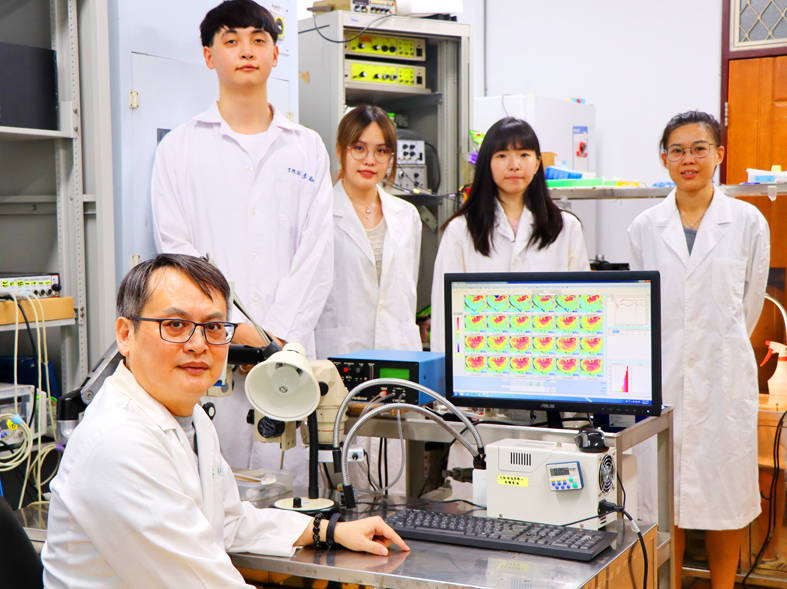《TAIPEI TIMES》 Antioxidant might ease infection, study finds

National Taiwan Normal University Department of Life Science professor Chien Chiang-ting, sitting, and his team of researchers pose for a photograph at a laboratory at the university in an undated photograph. Photo courtesy of National Taiwan Normal University
By Rachel Lin and Jake Chung / Staff reporter, with staff writer
Catechin, an antioxidant found in tea leaves, might inhibit the reproduction of SARS-CoV-2, a research team found.
The team, lead by Chien Chiang-ting (鄭劍廷), a professor at National Taiwan Normal University’s life science department, published the findings in the peer-reviewed, open-access journal Antioxidant on June 7.
The team used mice infected with COVID-19 to test the effects of the phenol catechin, which is known for its antioxidant, anti-inflammatory, antiviral and antimicrobial properties.
The research showed that green tea extracts inhibited the reproduction of SARS-CoV-2, enhanced CD8+ mediated adaptive immunity, depressed cytokine storms and promoted an autophagy-dependent protective mechanism to ameliorate acute lung injury.
Catechin lowered the amount of cell damage and improved the morphology of the mice’s Vero E6 cells, which play a role in the reproduction of the virus, the team found.
Yang Chih-ching (楊芝青), a technical supervisor at the Ministry of Health and Welfare who coauthored the paper, said that catechin effectively inhibited the generation of SARS-CoV-2 replicase.
Chien said that while catechin could be ingested by drinking green tea, the amount is insufficient to repress the virus.
The catechin used in the study had been specifically prepared, and the serum given to the mice was free of caffeine, Chien said, adding that catechin in tea or other products available on the market does not have the properties required.
However, widely available products containing catechin might affect the viral load of an infected person and could be taken as a supplement, he said.
A person weighing 50kg should ingest 2.5g of catechin per day, split in two to three doses, the team said.
新聞來源:TAIPEI TIMES

















